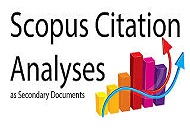Isu-Isu Kosakata Matematis dalam Pembelajaran Matematika
DOI:
https://doi.org/10.33394/jk.v6i1.2281Keywords:
Mathematical VocabularyAbstract
This study aims to examine the problem of mathematical vocabulary as the main issues of mathematics education. Through library research with literature review and interviews with several mathematics teachers, data obtained are relevant to the purpose of the study. Descriptively, the data collected from the results of interviews with the teacher regarding his textbook for teaching were analyzed by interactive models. The results showed that the mathematical vocabulary was not yet the basis of school mathematics learning, because the textbooks he used lacked the mathematical vocabulary and were directly used for teaching.
References
Anglin, J.M. (2000). Vocabulary development: A morphological analysis. Oxford:
Blackwell Publishing.
Astari T. (2015). Konsep dan Fungsi Kajian/Telaah Buku Teks. Diakses dari http://www.slideshare.net/AstariAdja/makalah-konsep-dan-fungsi-kajian-buku-teks.
Biemiller, A., dan Slonim, N. (2001). Estimating root word vocabulary growth in normative and advantaged populations: Evidence for a common sequence of vocabulary acquisition. Journal of Educational Psychology, 93 (3), 498–520.
Bishop A. (1985). The Social Construction of Meaning: A Significant Development for Mathematics Education. For the Learning of Mathematics, Vol. 5, No. 1 (Feb., 1985), pp. 24-28. Diakses dari http://www.jstor.org/stable/40247873.
Bradley, E. (2003). An action research project presented to the Shawnee Mission Board of Education. Diakses dari http//www.smsd.org/custom/curriculum/ActionResearch2003/ Bradley.htm.
Cambridge Dictionary (2016). English Dictionary. Diakses dari http://dictionary. Cambri-dge.org/dictionary/english/mathematics#translations
Ernest, P. (1991) The Philosophy of Mathematics Education, London: Falmer Press.
Emmer, Michele (2005). Mathematics and Culture II. Visual Perfection:
Mathematics and Creativity. Springer-Verlag Berlin Heidelberg
Gauss C. F., (2016). Wikiquote. Diakses dari https://en.wikiquote.org/wiki/Carl Friedrich_Gauss.
Gifford, M. dan Gore, S. (2008). The effects of focused academic vocabulary instruction
on underperforming math students. Alexandria, VA: ASCD Report. Diakses dari: http://www.org/ASCD/pdf/Building%20Academic%20Vocabulary/academic_vo_cabulary_ math_white_paper_web.pdf
Guerra, C. dan Schutz, R. (2001). Vygotsky. English Made in Brazil. Retrieved March 1,
Diakses dari http://www.english.sk.com.br/sk-vygot.html
Miles M. B. A., Huberman M., Saldaña J. (2014). Qualitative data analysis: a methods sourcebook. California: Third Edition SAGE Publications, Inc.
Imamah, R.N, (2014). Analisis Buku Teks Siswa Matematika Kelas VII Kurikulum 2013. Diakses dari https://www.google.com/search?q=Nurdiana+%282014%29+ buku+ teks&ie=utf-8&oe=utf-8&client=firefox-b
Kamus Besar Bahasa Indonesia (KBBI) Online (2016). Diakses dari http://kbbi.web.id/
Kompasiana (2013). Matematika Ilmu Pasti Atau Ilmu Berpikir Logis??? Diakses dari http:// www.kompasiana.com/pdm-45/matematika-ilmu-pasti-atau-ilmu-berpikir-logis
Kasmaja, DS, Hadi (2016). Ethnomathematics (Matematika dalam Perspektif budaya).
Diakses dari http://www.kompasiana.com/hadi_dsaktyala/ethnomathematics-matemati-ka-dalam-perspektif-budaya_551f62a4a333118940b659fd.
Marzano, R. (2004). Building background knowledge for academic achievement. Alexandria, Virginia: ASCD.
Miriam-Webster Online (2016). Webster Dictionary. Diakses dari https://www.merriam-webster.com/
Nurmutia, H. E, Mariani, S., Susilo B. E (2013). Analisis Materi, Penyajian, Dan Bahasa Buku Teks Matematika SMA Kelas X Di Kabupaten Rembang. Diakses dari https://www. google.com/search?q=Nurmutia+%282013%29+terhadap+buku+teks+matematika+kelas+X+&ie=utf-8&oe=utf-8&client=firefox-b
Miller, K. (2007). EFL vocabulary teaching tips. Suite 101. Diakses dari
http://esl-programs-lessons.suite101.com/article.cfm/tips_for_teaching_l2_vocab- ulary
Salinas dan Ortlieb (2011) Best Vocabulary Practices to Support Mathematics inthe Age of Common Core Standards. Diakses dari https://www.academia.edu/2820556/Best_Vocabulary_Practices_to_Support_Mathematics_in_the_Age_of_Common_Core_Standards_2011_
Sawarjuwono, T., & Kadir, A. P. (2004). Intellectual Capital: Perlakuan, Pengukuran dan Pelaporan (Sebuah Library Research). Jurnal akuntansi dan keuangan, 5(1), 35-57.
Snow, C. (2002). Reading for understanding: Toward an R&D program in reading comprehension. Santa Monica, California: Rand Corporation
Stahl, S. A., dan Fairbanks, M. (1986). The effects of vocabulary instruction: A model-based meta-analysis. Review of Educational Research, 56 (1), 72–110.
Suriasumantri, Jujun, S (2007). Filsafat Ilmu: Sebuah Pengantar Populer. Jakarta: Pustaka Sinar Harapan
Thompson, D., dan Rubenstein, R. (2000). Learning mathematics vocabulary: Potential pitfalls and instructional strategies. The Mathematics Teacher, 93 (7), 568–574.
Yadav, A. K. (2016) Mathematics Vocabulary Building. Diakses dari http://ierj.in/journal/ index.php/ ierj/article/view/172.
Downloads
Published
How to Cite
Issue
Section
Citation Check
License
License and Publishing AgreementIn submitting the manuscript to the journal, the authors certify that:
- They are authorized by their co-authors to enter into these arrangements.
- The work described has not been formally published before, except in the form of an abstract or as part of a published lecture, review, thesis, or overlay journal.
- That it is not under consideration for publication elsewhere,
- That its publication has been approved by all the author(s) and by the responsible authorities – tacitly or explicitly – of the institutes where the work has been carried out.
- They secure the right to reproduce any material that has already been published or copyrighted elsewhere.
- They agree to the following license and publishing agreement.
Authors who publish with JK agree to the following terms:
- Authors retain copyright and grant the journal right of first publication with the work simultaneously licensed under a Creative Commons Attribution License (CC BY-SA 4.0) that allows others to share the work with an acknowledgment of the work's authorship and initial publication in this journal.Â
- Authors are able to enter into separate, additional contractual arrangements for the non-exclusive distribution of the journal's published version of the work (e.g., post it to an institutional repository or publish it in a book), with an acknowledgment of its initial publication in this journal.
- Authors are permitted and encouraged to post their work online (e.g., in institutional repositories or on their website) prior to and during the submission process, as it can lead to productive exchanges, as well as earlier and greater citation of published work.
- Open Data Commons Attribution License, http://www.opendatacommons.org/licenses/by/1.0/ (default)

This work is licensed under a Creative Commons Attribution-ShareAlike 4.0 International License.








